#buying selling of luxury product
Explore tagged Tumblr posts
Text
टैंजरीन लक्ज़री एक स्थायी भविष्य के लिए ला रही है फैशन की दुनिया में बदलाव
लक्ज़री फ़ैशन उद्योग में अग्रणी टैंजरीन लक्ज़री, लोगों के फ़ैशन उपभोग करने के तरीके में बदलाव की क्रांति ला रहा है। पर्यावरणीय स्थिरता पर मजबूत ध्यान देने और धरती पर जीवन की गुणवत्ता में सुधार करने के मिशन के साथ, टैंजरीन लक्ज़री ,लक्जरी उत्पादों को एक नया जीवन देने के लिए एक मंच प्रदान कर रहा है। ब्रांड का मानना है कि हर कोई विलासिता का अनुभव करने का हकदार है। सर्कुलर इकोनॉमी को बढ़ावा देकर और उपयोग हो चुके लक्ज़री उत्पादों की पेशकश करके, टैंजरीन लक्ज़री का लक्ष्य लक्ज़री को अधिक सुलभ, किफायती और पर्यावरण के अनुकूल बनाना है।
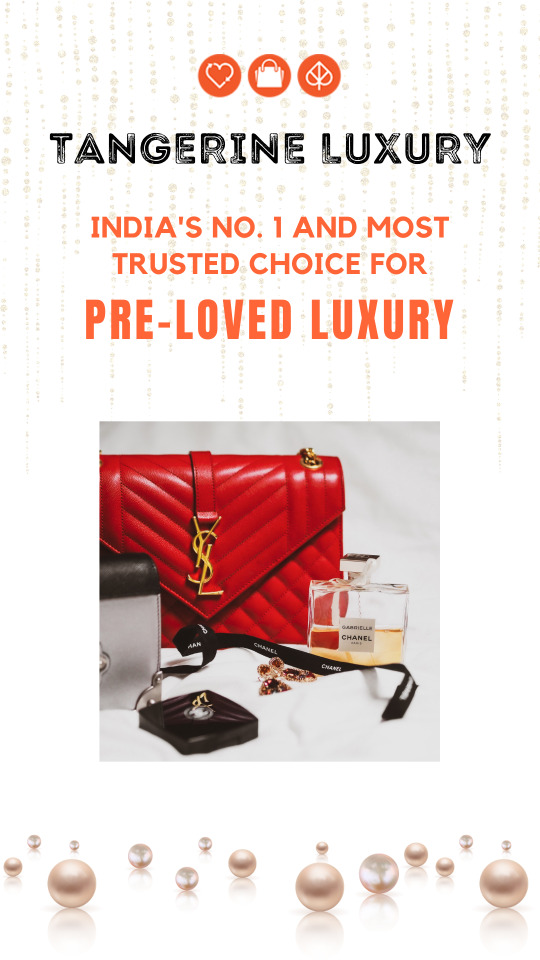
टैंजरीन लक्ज़री की संस्थापक तान्या भाटिया का दृढ़ विश्वास है कि हर कोई विलासिता की इच्छा रखता है और उसका हकदार है ,इसलिए उन्हें इसे प्राप्त करने में सक्षम होने का हक़ है । लक्ज़री उत्पादों के मालिकों और उन उत्साही लोगों को जो उन्हें खरीदने की ख्वाहिश रखते हैं एक साथ लाने वाला एक प्लेटफ़ॉर्म बनाकर, टैंजरीन लक्ज़री लोगों को उन वस्तुओं को बेचने में सक्षम बनाता है जिनका वे अब उपयोग नहीं करते हैं । यह न केवल वस्तुओं को नया जीवन देता है बल्कि लोगों को सस्ती कीमतों पर विलासिता का उपयोग करने के लिए सक्षम भी करता है। लक्ज़री उत्पादों के जीवनचक्र का विस्तार करके, टैंजरीन लक्ज़री अत्यधिक खपत, अधिक उत्पादन और पर्यावरण पर उनके प्रभाव को कम करने में योगदान देता है।
बेचने और खरीदने के लिए इस लिंक पर क्लिक करें:
https://tangerineluxury.com/
पहले उपयोग किये जा चुके यानि सेकंड हैंड लक्ज़री उत्पादों को ऑनलाइन खरीदने और बेचने के लिए भारत के पहले एन्ट्रापी सत्यापित पोर्टल के रूप में, टैंजरीन लक्ज़री गुणवत्ता और प्रामाणिकता के उच्चतम मानकों को सुनिश्चित करता है। ब्रांड लक्ज़री बाज़ार में विश्वास और पारदर्शिता के महत्व को पहचानता है, और उनकी सख्त सत्यापन प्रक्रिया ग्राहकों को सेकंड हैंड आइटम खरीदते समय मन की शांति प्रदान करती है।
टैंजरीन लक्ज़री का दृष्टिकोण इस विश्वास से प्रेरित है कि फैशन टिकाऊ हो सकता है और फिर भी नवीनता बरक़रार रह सकती है। जलवायु परिवर्तन के दबाव वाले मुद्दों को संबोधित करते हुए, ब्रांड इस बात पर जोर देता है कि उनका लक्ष्य जिम्मेदार फैशन को बढ़ावा देना है। पहले से उपयोग किए जा चुके फैशन की अवधारणा को अपनाते हुए, टैंजरीन लक्ज़री मौजूदा रुझानों के साथ तालमेल बिठाता है और टिकाऊ खपत को बढ़ावा देते हैं।
इंस्टाग्राम प्रोफ़ाइल पर जाएँ:
फैशन पेशेवरों की एक समर्पित टीम के साथ, टैंजरीन लक्ज़री यह सुनिश्चित करता है कि प्रत्येक बिक्री खरीदार और विक्रेता दोनों के लिए सार्थक और परिवर्तनकारी अनुभव हो। रीकॉमर्स के प्रति उनकी प्रतिबद्धता लोगों को सेकंड हैंड उत्पादों पर भरोसा करने के लिए प्रोत्साहित करती है।
संधारणीयता के प्रति फैशन उद्योग के दृष्टिकोण को फिर से आकार देने में टैंजरीन लक्ज़री कदम बढ़ा रहा है। पहले से पसंद और उपयोग किए जा चुके फैशन के माध्यम से विलासिता को फिर से परिभाषित करके, वे कचरे को कम करने, नैतिक खपत को बढ़ावा देने और उपभोक्ताओं को विकल्पों की एक विस्तृत श्रृंखला प्रदान करने में महत्वपूर्ण प्रगति कर रहे हैं। उनका अभिनव मंच व्यक्तियों को एक परिपत्र अर्थव्यवस्था में भाग लेने के लिए सशक्त बनाता है, जहां सेकंड हैंड फैशन आइटम को संजोया जाता है और दूसरा जीवन दिया जाता है।
संपर्क करें :
https://tangerineluxury.com/
+91 70420 39009
#Authentication services#tangerine luxury#luxury products#best luxury items#buying selling of luxury product#preloved luxury products in india
0 notes
Text
Get Rich with your 9H:
(Travel,Teach,Expanding in International business)
Aries in the 9th
Get up and go. Nobody cares about your plan they care that you move. Teach what you’ve lived. Sell bold energy and fearless choices. Your passport is your permission slip. Be loud be first be visible and monetize the chaos you naturally create.
Taurus in the 9th
Make the world look expensive and sell it like a lifestyle. Your eye for comfort and beauty is the brand. Show up soft but unbothered and build offers around what feels good. Partner with luxury and stay grounded. Lazy gets you broke. So don’t be lazy.
Gemini in the 9th
Open your mouth and monetize your brain. You talk for free now it’s time to charge. Build content systems and keep dropping game daily. Sell knowledge with style and speed. If you’re silent you stay broke. If you’re visible you win. It’s that simple.
Cancer in the 9th
Your pain is the offer and your healing is the hook. Travel with heart and show people how to feel again. Run retreats that save people. Share softness that costs. You lead through emotion and you profit through care. Start building your sacred business.
Leo in the 9th
Make your life the show. Cameras on confidence up. Sell visibility sell boldness sell being the center. Influence with flair and make the attention pay you. You want fame then act famous. No one will look if you keep hiding. Shine on purpose or stay forgotten.
Virgo in the 9th
Monetize precision. Make a plan. Package the plan. Sell the plan. Your structure is the product and your clarity is rare. Teach systems to messy people. Get paid to organize the chaos. No more hiding behind drafts. Perfect it then ship it fast.
Libra in the 9th
Stop being pretty for free. Sell the aesthetics sell the balance sell the lifestyle. Partner with brands that reflect your taste. Teach people how to see and be seen. Influence is your lane but only if you claim it. Charm is currency. Spend it wisely.
Scorpio in the 9th
Make your pain pay. Go dark go deep tell the story no one else will. People buy what cracks them open. Offer transformation not just advice. Build mystery. Build intensity. Sell the shift. You’re not here to play nice you’re here to change lives.
Sagittarius in the 9th
No excuses. Go global. Speak teach film guide. Your wisdom is your product. Your passport is your platform. Turn freedom into business. Market your journey like religion. People will pay to be near your truth if you finally stand on it.
Capricorn in the 9th
Make moves that print long money. Build business across borders. Consult strategize lead. Teach from experience not theory. Profit from the structure you live by. Travel with purpose or don’t travel at all. Results only. Legacy now.
Aquarius in the 9th
Invent and disrupt. Make digital freedom the product. Teach the weird way that works. Build community while you move. People are stuck in the past. Sell the future. Stop waiting for approval. You’re the blueprint. Drop it and charge for it.
Pisces in the 9th
Your spirit makes money. Sell the vision sell the healing sell the dream. Host retreats that feel like rebirth. Channel your gifts into something real. Build offers that move through energy. Stop being scared to charge for your magic. You are the offering.
Get an Astrology Reading With me : https://www.tumblr.com/astroxrion/784631769533136896/o-my-readings-the-rion-code-o?source=share
#astrology#astronomy#numerology#spirituality#twin flames#spiritual awakening#spiritual growth#spiritual healing#spiritual journey#intrusive thoughts#Aries#Gemini#Taurus#cancer#Leo#Virgo#Libra#Scorpio#Sagittarius#capricorn#aquarium#Aquarius#Pisces#geminitay
498 notes
·
View notes
Text
The Morrisian case against fast fashion
Today I discovered that H&M made a William Morris collection some years ago. The heath death of the universe can't come quickly enough. We can stop now. Satire is dead and we killed her.
It's not just the whole concept of H&M using William Morris' designs for their fast fashion which is insanity inducing, but also the critical response it garnered. Like sure, people did realize this is insane and there was a lot of think pieces about it at the time, but I read several of them and they all seem to still miss the point in spectacular way.
The basic premise of these think pieces go along the lines of: "Would William Morris spin in his grave with a speed of light because of the H&M collection of his designs? A difficult question indeed. William Morris was a complicated man. He wanted art to be affordable to everyone. Isn't H&M affordable? That kinda fits. Though probably he would have some concerns about H&M's practices."
On the surface - yes - but like in reality - fuck no. There's no nuance in this particular issue. He talked about many times what he though of the H&Ms of his time, the retailers selling poor quality industrially produced "fashionable" bullshit. We know exactly what he would have thought of H&M. Here's couple of quotes from his 1884 lecture "Art and Socialism", which makes it very clear.
"It would be an instructive day's work for any one of us who is strong enough to walk through two or three of the principal streets of London on a week-day, and take accurate note of everything in the shop windows which is embarrassing or superfluous to the daily life of a serious man. Nay, the most of these things no one, serious or unserious, wants at all; only a foolish habit makes even the lightest-minded of us suppose that he wants them, and to many people even of those who buy them they are obvious encumbrances to real work, thought and pleasure. But I beg you to think of the enormous mass of men who are occupied with this miserable trumpery, from the engineers who have had to make the machines for making them, down to the hapless clerks who sit day-long year after year in the horrible dens wherein the wholesale exchange of them is transacted, and the shopmen, who not daring to call their souls their own, retail them amidst numberless insults which they must not resent, to the idle public which doesn't want them but buys them to be bored by them and sick to death of them."
He is describing the birth of consumerism, which was taking form during his lifetime in the late Victorian Era, which fast fashion is the extreme logical conclusion of, and he fucking hated it. He specifically railed against endless consumerist products, which H&M is the perfect representation of. It was definitely not the art and beauty he believed everyone required and deserved. He makes the distinction often.
"Now if we are to have popular Art, or indeed Art of any kind, we must at once and for all be done with this luxury; it is the supplanter, the changeling of Art; so much so that by those who know of nothing better it has even been taken for Art, the divine solace of human labour, the romance of each day's hard practice of the difficult art of living."
"And here furthermore is at least a little sign whereby to distinguish between a rag of fashion and a work of Art: whereas the toys of fashion when the first gloss is worn off them do become obviously worthless even to the frivolous—a work of Art, be it ever so humble, is long lived; we never tire of it; as long as a scrap hangs together it is valuable and instructive to each new generation. All works of Art in short have the property of becoming venerable amidst decay: and reason good, for from the first there was a soul in them, the thought of man, which will be visible in them so long as the body exists in which they were implanted."
When he thought of popular Art he thought of the craftsmanship of the common people. The art people have made from useful everyday objects with skillful handicrafts. This is what he means by "divine solace of human labour". It's not reverence of Puritanical work ethic, on the contrary, it's the reverence of creation, of the earnest joy people feel when they get to express themselves through their creative pursuits. He certainly didn't believe in work for work's sake, work needed to be worthwhile and enjoyable. He summarized his own position on what labour should be thusly:
"It is right and necessary that all men should have work to do which shall be worth doing, and be of itself pleasant to do; and which should he done under such conditions as would make it neither over-wearisome nor over-anxious."
He urged his middle class audience to reject consumerism (the lecture was for a very much middle class atheist society):
"For I say again that in buying these things: 'Tis the lives of men you buy! Will you from mere folly and thoughtlessness make yourselves partakers of the guilt of those who compel their fellow men to labour uselessly?"
I think it's glaringly obvious H&M and fast fashion in general is what he would consider luxury. Rags of fashion that are just churned out and discarded without thought and produced by compelling people to labour uselessly. It's not popular art that's made by workers and craftsmen, who are able to express themselves through it. There's no agency for the abused workers in H&M's sweatshops, they are not expressing their joy of creation, they are simply labouring uselessly.
Morris didn't shame workers for buying affortable things even if they weren't Art with big A, because that's the problem he despised the whole economic system for, for taking away the popular Art from people, making it inaccessible, and selling back mass produced products with very little practical or aesthetic value. So I don't think he would have problem with people who can only afford fast fashion today. They are the victims of capitalism too, because Art has been taken away from them. But the idea that some of these think pieces had that perhaps the H&M's Morris collection can be good actually if you squint, that H&M has the capacity to bring the art and beauty Morris advocated for for the people, is level of stupidity that's hard to express in words.
Morris didn't believe anything made with exploited labour could be truly beautiful, truly art. In his 1879 lecture "The Art of the People" he put it like this:
"That thing which I understand by real art is the expression by man of his pleasure in labour."
The way I understand this, is that art is communication. Through it we communicate feelings, ideas and thoughts, that is it's purpose. So for that communication to work, for it to be imbued with message, the person making it needs to feel passion and love for it's creation. How can there be love and passion if the hands making the garment belong to a tired exploited worker who has no agency what so ever in their work and can only think about survival to the next day?
Beyond the fundamental exploitativeness of H&M and fast fashion, this collection would still get zero points on aesthetic values from Morris even with his own designs. Because the work itself was such an important part of art for Morris, good design was nothing without good craftsmanship. Good design in his mind was always relative and dependent on it's purpose.
"For everything made by man’s hands has a form, which must be either beautiful or ugly; beautiful if it is in accord with Nature, and helps her; ugly if it is discordant with Nature, and thwarts her; it cannot be indifferent." (The Lesser Arts, 1877)
Here when he says nature, he means the nature of the thing that is made - basically it's purpose and function - and the nature of the materials it's made from. Basically, the design must always be made to bring out the function of the art and the qualities of the material it's made from, not fight against them. This is because he believed handicrafts were uniquely suitable for expressing the love of creation, therefore superior labour, and to really bring out the qualities of the craftsmanship and enjoy the creative process, the design should be suitable for that craft. The other side, which was the joy of using and experiencing art, required the craft to be selected for the suitable purpose. Using poorly functioning furniture for example is not very enjoyable, nor is using clothing that's made from materials that are not suitable for the climactic conditions it's supposed to be used in.
H&M of course utterly fails in this. They use Morris' designs in fully unsuitable ways. They print patterns made for example for wall papers on poor quality fabrics with synthetics dyes they weren't made for. This line from one blog post I came across really got me: "Therefore, without cheapening the artistic value of Morris’ designs, H&M’s collection offers an unparalleled potential for accessibility to them." No. Fuck no. They do in fact cheapen Morris' designs in every single way possible. Literally this is atrocious.
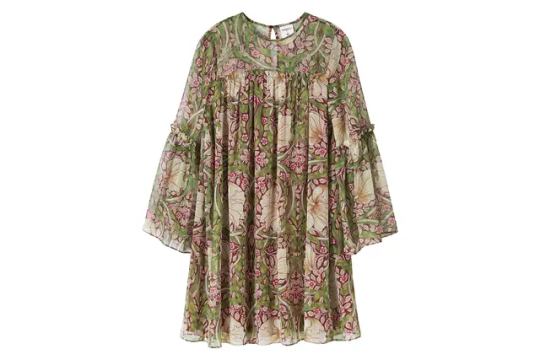
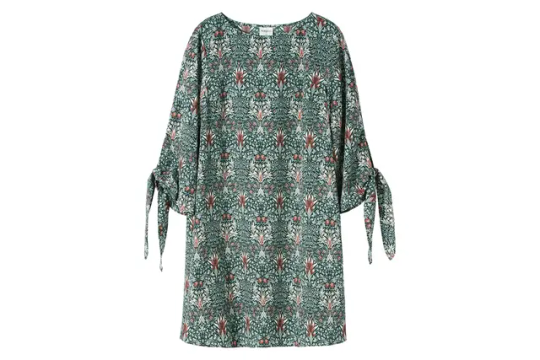
Despite the popular depiction, Morris wasn't in fact against industrial machinery or industrial art even, or at least he wasn't once his views on art and politics matured. He did think technology was useful, but he thought the people should use industrial methods for the benefit of all, not be enslaved by the industrial machine.
"I have spoken of machinery being used freely for releasing people from the more mechanical and repulsive part of necessary labour; and I know that to some cultivated people, people of the artistic turn of mind, machinery is particularly distasteful, and they will be apt to say you will never get your surroundings pleasant so long as you are surrounded by machinery. I don't quite admit that; it is the allowing machines to be our masters and not our servants that so injures the beauty of life nowadays. In other words, it is the token of the terrible crime we have fallen into of using our control of the powers of Nature for the purpose of enslaving people, we care less meantime of how much happiness we rob their lives of." ("How we live and how we might live", 1887)
However, he thought that the designer should approach it the way they approached any craft, by designing for the strengths of the machine work.
"But if you have to design for machine-work, at least let your design show clearly what it is. Make it mechanical with a vengeance, at the same time as simple at possible. Don't try, for instance, to make a printed plate look like a hand-painted one: make it something which no one would try to do if he were painting by hand..." ("Art and the Beauty of the Earth", 1881)
He did use some machinery for fabric and wall paper printing, but he was very intentional about their use. Still his designs weren't made for the type of methods these modern H&M machinery uses and he did for example use natural dyes. Particularly insulting is that some of the H&M clothes are made from viscose, rayon made with viscose method. Viscose method is extremely toxic and is known to cause long term health consequences for the workers and the people in surrounding areas. This has been well proven knowledge for ages. William Morris' wall paper factory in the beginning used the typical method used at the time which involved arsenic, but once he learned this could pose risks for the workers, he changed the method. Many of the new synthetic dyes were toxic at the time, which is the major reason he so favoured natural dyes, known to not cause health issues for workers or pollute the environment.
The question many of these think pieces about the H&M Morris collection posed was, would Morris disapprove and should we care? The first part of that is very easy to answer. Yes. Of course Morris would disapprove. He is currently powering the whole of British Isles with purely the kinetic energy his grave-spinning produces. Should we care though? If you care about Morris' art, if you want to see more of that kind of art in this world, you should care. Morris' art is not about the superficial qualities. Copying his designs and aesthetics and styles, will only lead to hollow imitations, that are exactly what he described the rags of fashion to be; as the shininess of novelty wears off they will reveal themselves to be soulless, useless and utterly empty. This collection is just that. To see more of the kind of art that makes you feel like his art makes you feel, not just something that reminds you of that feeling, you should focus more on the way the art is made and less on the specific aesthetics. If his vision of labour and art was realised, all art produced of course wouldn't be loved by every person, but all of it would be loved by someone, even if that someone was just the maker. And that would be more worthwhile than every single rag of fast fashion.
I will stop William-Morris-posting now and return to my thesis.
The full texts I quoted here:
Art and Socialism The Art of the People The Lesser Arts How We Live and How We Might Live Art and the Beauty of the Earth
#william-morris-posting#fashion#fast fashion#william morris#a&c#arts and crafts movement#fashion history#history#textiles#textile history#sustainability
700 notes
·
View notes
Text
using harvest moon porn to explain how book advances work
bear with me on this, it's a funny thought i had but might be of interest to anyone not familiar with traditional book publishing and how authors are usually paid.
i have an artbook coming out soon: Harvest Nude, a collection of erotic illustrations of characters from the harvest moon/story of seasons/rune factory series of games. i'd done around 13 of the illustrations myself, for fun, and then opened commissions to add pages to it. there are now 31 additional pages paid for by commissioners, at $90 a piece.
we are going to pretend those commissioners are, as a group, The Publisher. not counting tips/fees/taxes, The Publisher has paid me an advance of $2790 to produce this artbook. (we are going to also pretend that i'm getting a single up-front advance. in traditional publishing, you're more likely to get it split up into multiple payments on signing/delivery/release)
so that is what i'm paid. when the book is out and released, the publisher gets all the profit up until the point the book "earns out". what that means is that the book will have earned an equivalent amount in sales to what The Publisher paid me: $2790. if the book never makes this much money, i'll never see another cent more than that initial $2790.
at $5 a copy (again ignoring fees, taxes, tips) the book would need to sell 558 copies. if it does do this, then i start earning royalties. royalties are a percentage of all future sales, usually in the ballpark of 10%. from that point on, until the book goes completely out of print, i would receive a check twice a year for whatever that amounts to. depending on the size of your advance, this can take years to happen. for a lot of books, it never happens at all! the advance is all you get!
but... fortunately this is not the case. my commissioners are individuals buying a luxury product that they've given me permission to profit from. so actually, i've made $2790, and get to keep the proceeds of all future sales. which makes it funny that this book will almost certainly not hit the "earn out" threshold because the people who commissioned me get a free copy of the book, and they're the same audience that would have bought it. i will absolutely make more on the commissions than the book they're intended for.
hopefully this was educational on the subject of how advances and royalties work. and perhaps you would like to buy the book and contribute to it """"earning out."""" there are a lot of hot boys and girls in there.
319 notes
·
View notes
Text
Your car spies on you and rats you out to insurance companies

I'm on tour with my new, nationally bestselling novel The Bezzle! Catch me TOMORROW (Mar 13) in SAN FRANCISCO with ROBIN SLOAN, then Toronto, NYC, Anaheim, and more!

Another characteristically brilliant Kashmir Hill story for The New York Times reveals another characteristically terrible fact about modern life: your car secretly records fine-grained telemetry about your driving and sells it to data-brokers, who sell it to insurers, who use it as a pretext to gouge you on premiums:
https://www.nytimes.com/2024/03/11/technology/carmakers-driver-tracking-insurance.html
Almost every car manufacturer does this: Hyundai, Nissan, Ford, Chrysler, etc etc:
https://www.repairerdrivennews.com/2020/09/09/ford-state-farm-ford-metromile-honda-verisk-among-insurer-oem-telematics-connections/
This is true whether you own or lease the car, and it's separate from the "black box" your insurer might have offered to you in exchange for a discount on your premiums. In other words, even if you say no to the insurer's carrot – a surveillance-based discount – they've got a stick in reserve: buying your nonconsensually harvested data on the open market.
I've always hated that saying, "If you're not paying for the product, you're the product," the reason being that it posits decent treatment as a customer reward program, like the little ramekin warm nuts first class passengers get before takeoff. Companies don't treat you well when you pay them. Companies treat you well when they fear the consequences of treating you badly.
Take Apple. The company offers Ios users a one-tap opt-out from commercial surveillance, and more than 96% of users opted out. Presumably, the other 4% were either confused or on Facebook's payroll. Apple – and its army of cultists – insist that this proves that our world's woes can be traced to cheapskate "consumers" who expected to get something for nothing by using advertising-supported products.
But here's the kicker: right after Apple blocked all its rivals from spying on its customers, it began secretly spying on those customers! Apple has a rival surveillance ad network, and even if you opt out of commercial surveillance on your Iphone, Apple still secretly spies on you and uses the data to target you for ads:
https://pluralistic.net/2022/11/14/luxury-surveillance/#liar-liar
Even if you're paying for the product, you're still the product – provided the company can get away with treating you as the product. Apple can absolutely get away with treating you as the product, because it lacks the historical constraints that prevented Apple – and other companies – from treating you as the product.
As I described in my McLuhan lecture on enshittification, tech firms can be constrained by four forces:
I. Competition
II. Regulation
III. Self-help
IV. Labor
https://pluralistic.net/2024/01/30/go-nuts-meine-kerle/#ich-bin-ein-bratapfel
When companies have real competitors – when a sector is composed of dozens or hundreds of roughly evenly matched firms – they have to worry that a maltreated customer might move to a rival. 40 years of antitrust neglect means that corporations were able to buy their way to dominance with predatory mergers and pricing, producing today's inbred, Habsburg capitalism. Apple and Google are a mobile duopoly, Google is a search monopoly, etc. It's not just tech! Every sector looks like this:
https://www.openmarketsinstitute.org/learn/monopoly-by-the-numbers
Eliminating competition doesn't just deprive customers of alternatives, it also empowers corporations. Liberated from "wasteful competition," companies in concentrated industries can extract massive profits. Think of how both Apple and Google have "competitively" arrived at the same 30% app tax on app sales and transactions, a rate that's more than 1,000% higher than the transaction fees extracted by the (bloated, price-gouging) credit-card sector:
https://pluralistic.net/2023/06/07/curatorial-vig/#app-tax
But cartels' power goes beyond the size of their warchest. The real source of a cartel's power is the ease with which a small number of companies can arrive at – and stick to – a common lobbying position. That's where "regulatory capture" comes in: the mobile duopoly has an easier time of capturing its regulators because two companies have an easy time agreeing on how to spend their app-tax billions:
https://pluralistic.net/2022/06/05/regulatory-capture/
Apple – and Google, and Facebook, and your car company – can violate your privacy because they aren't constrained regulation, just as Uber can violate its drivers' labor rights and Amazon can violate your consumer rights. The tech cartels have captured their regulators and convinced them that the law doesn't apply if it's being broken via an app:
https://pluralistic.net/2023/04/18/cursed-are-the-sausagemakers/#how-the-parties-get-to-yes
In other words, Apple can spy on you because it's allowed to spy on you. America's last consumer privacy law was passed in 1988, and it bans video-store clerks from leaking your VHS rental history. Congress has taken no action on consumer privacy since the Reagan years:
https://www.eff.org/tags/video-privacy-protection-act
But tech has some special enshittification-resistant characteristics. The most important of these is interoperability: the fact that computers are universal digital machines that can run any program. HP can design a printer that rejects third-party ink and charge $10,000/gallon for its own colored water, but someone else can write a program that lets you jailbreak your printer so that it accepts any ink cartridge:
https://www.eff.org/deeplinks/2020/11/ink-stained-wretches-battle-soul-digital-freedom-taking-place-inside-your-printer
Tech companies that contemplated enshittifying their products always had to watch over their shoulders for a rival that might offer a disenshittification tool and use that as a wedge between the company and its customers. If you make your website's ads 20% more obnoxious in anticipation of a 2% increase in gross margins, you have to consider the possibility that 40% of your users will google "how do I block ads?" Because the revenue from a user who blocks ads doesn't stay at 100% of the current levels – it drops to zero, forever (no user ever googles "how do I stop blocking ads?").
The majority of web users are running an ad-blocker:
https://doc.searls.com/2023/11/11/how-is-the-worlds-biggest-boycott-doing/
Web operators made them an offer ("free website in exchange for unlimited surveillance and unfettered intrusions") and they made a counteroffer ("how about 'nah'?"):
https://www.eff.org/deeplinks/2019/07/adblocking-how-about-nah
Here's the thing: reverse-engineering an app – or any other IP-encumbered technology – is a legal minefield. Just decompiling an app exposes you to felony prosecution: a five year sentence and a $500k fine for violating Section 1201 of the DMCA. But it's not just the DMCA – modern products are surrounded with high-tech tripwires that allow companies to invoke IP law to prevent competitors from augmenting, recongifuring or adapting their products. When a business says it has "IP," it means that it has arranged its legal affairs to allow it to invoke the power of the state to control its customers, critics and competitors:
https://locusmag.com/2020/09/cory-doctorow-ip/
An "app" is just a web-page skinned in enough IP to make it a crime to add an ad-blocker to it. This is what Jay Freeman calls "felony contempt of business model" and it's everywhere. When companies don't have to worry about users deploying self-help measures to disenshittify their products, they are freed from the constraint that prevents them indulging the impulse to shift value from their customers to themselves.
Apple owes its existence to interoperability – its ability to clone Microsoft Office's file formats for Pages, Numbers and Keynote, which saved the company in the early 2000s – and ever since, it has devoted its existence to making sure no one ever does to Apple what Apple did to Microsoft:
https://www.eff.org/deeplinks/2019/06/adversarial-interoperability-reviving-elegant-weapon-more-civilized-age-slay
Regulatory capture cuts both ways: it's not just about powerful corporations being free to flout the law, it's also about their ability to enlist the law to punish competitors that might constrain their plans for exploiting their workers, customers, suppliers or other stakeholders.
The final historical constraint on tech companies was their own workers. Tech has very low union-density, but that's in part because individual tech workers enjoyed so much bargaining power due to their scarcity. This is why their bosses pampered them with whimsical campuses filled with gourmet cafeterias, fancy gyms and free massages: it allowed tech companies to convince tech workers to work like government mules by flattering them that they were partners on a mission to bring the world to its digital future:
https://pluralistic.net/2023/09/10/the-proletarianization-of-tech-workers/
For tech bosses, this gambit worked well, but failed badly. On the one hand, they were able to get otherwise powerful workers to consent to being "extremely hardcore" by invoking Fobazi Ettarh's spirit of "vocational awe":
https://www.inthelibrarywiththeleadpipe.org/2018/vocational-awe/
On the other hand, when you motivate your workers by appealing to their sense of mission, the downside is that they feel a sense of mission. That means that when you demand that a tech worker enshittifies something they missed their mother's funeral to deliver, they will experience a profound sense of moral injury and refuse, and that worker's bargaining power means that they can make it stick.
Or at least, it did. In this era of mass tech layoffs, when Google can fire 12,000 workers after a $80b stock buyback that would have paid their wages for the next 27 years, tech workers are learning that the answer to "I won't do this and you can't make me" is "don't let the door hit you in the ass on the way out" (AKA "sharpen your blades boys"):
https://techcrunch.com/2022/09/29/elon-musk-texts-discovery-twitter/
With competition, regulation, self-help and labor cleared away, tech firms – and firms that have wrapped their products around the pluripotently malleable core of digital tech, including automotive makers – are no longer constrained from enshittifying their products.
And that's why your car manufacturer has chosen to spy on you and sell your private information to data-brokers and anyone else who wants it. Not because you didn't pay for the product, so you're the product. It's because they can get away with it.
Cars are enshittified. The dozens of chips that auto makers have shoveled into their car design are only incidentally related to delivering a better product. The primary use for those chips is autoenshittification – access to legal strictures ("IP") that allows them to block modifications and repairs that would interfere with the unfettered abuse of their own customers:
https://pluralistic.net/2023/07/24/rent-to-pwn/#kitt-is-a-demon
The fact that it's a felony to reverse-engineer and modify a car's software opens the floodgates to all kinds of shitty scams. Remember when Bay Staters were voting on a ballot measure to impose right-to-repair obligations on automakers in Massachusetts? The only reason they needed to have the law intervene to make right-to-repair viable is that Big Car has figured out that if it encrypts its diagnostic messages, it can felonize third-party diagnosis of a car, because decrypting the messages violates the DMCA:
https://www.eff.org/deeplinks/2013/11/drm-cars-will-drive-consumers-crazy
Big Car figured out that VIN locking – DRM for engine components and subassemblies – can felonize the production and the installation of third-party spare parts:
https://pluralistic.net/2022/05/08/about-those-kill-switched-ukrainian-tractors/
The fact that you can't legally modify your car means that automakers can go back to their pre-2008 ways, when they transformed themselves into unregulated banks that incidentally manufactured the cars they sold subprime loans for. Subprime auto loans – over $1t worth! – absolutely relies on the fact that borrowers' cars can be remotely controlled by lenders. Miss a payment and your car's stereo turns itself on and blares threatening messages at top volume, which you can't turn off. Break the lease agreement that says you won't drive your car over the county line and it will immobilize itself. Try to change any of this software and you'll commit a felony under Section 1201 of the DMCA:
https://pluralistic.net/2021/04/02/innovation-unlocks-markets/#digital-arm-breakers
Tesla, naturally, has the most advanced anti-features. Long before BMW tried to rent you your seat-heater and Mercedes tried to sell you a monthly subscription to your accelerator pedal, Teslas were demon-haunted nightmare cars. Miss a Tesla payment and the car will immobilize itself and lock you out until the repo man arrives, then it will blare its horn and back itself out of its parking spot. If you "buy" the right to fully charge your car's battery or use the features it came with, you don't own them – they're repossessed when your car changes hands, meaning you get less money on the used market because your car's next owner has to buy these features all over again:
https://pluralistic.net/2023/07/28/edison-not-tesla/#demon-haunted-world
And all this DRM allows your car maker to install spyware that you're not allowed to remove. They really tipped their hand on this when the R2R ballot measure was steaming towards an 80% victory, with wall-to-wall scare ads that revealed that your car collects so much information about you that allowing third parties to access it could lead to your murder (no, really!):
https://pluralistic.net/2020/09/03/rip-david-graeber/#rolling-surveillance-platforms
That's why your car spies on you. Because it can. Because the company that made it lacks constraint, be it market-based, legal, technological or its own workforce's ethics.
One common critique of my enshittification hypothesis is that this is "kind of sensible and normal" because "there’s something off in the consumer mindset that we’ve come to believe that the internet should provide us with amazing products, which bring us joy and happiness and we spend hours of the day on, and should ask nothing back in return":
https://freakonomics.com/podcast/how-to-have-great-conversations/
What this criticism misses is that this isn't the companies bargaining to shift some value from us to them. Enshittification happens when a company can seize all that value, without having to bargain, exploiting law and technology and market power over buyers and sellers to unilaterally alter the way the products and services we rely on work.
A company that doesn't have to fear competitors, regulators, jailbreaking or workers' refusal to enshittify its products doesn't have to bargain, it can take. It's the first lesson they teach you in the Darth Vader MBA: "I am altering the deal. Pray I don't alter it any further":
https://pluralistic.net/2023/10/26/hit-with-a-brick/#graceful-failure
Your car spying on you isn't down to your belief that your carmaker "should provide you with amazing products, which brings your joy and happiness you spend hours of the day on, and should ask nothing back in return." It's not because you didn't pay for the product, so now you're the product. It's because they can get away with it.
The consequences of this spying go much further than mere insurance premium hikes, too. Car telemetry sits at the top of the funnel that the unbelievably sleazy data broker industry uses to collect and sell our data. These are the same companies that sell the fact that you visited an abortion clinic to marketers, bounty hunters, advertisers, or vengeful family members pretending to be one of those:
https://pluralistic.net/2022/05/07/safegraph-spies-and-lies/#theres-no-i-in-uterus
Decades of pro-monopoly policy led to widespread regulatory capture. Corporate cartels use the monopoly profits they extract from us to pay for regulatory inaction, allowing them to extract more profits.
But when it comes to privacy, that period of unchecked corporate power might be coming to an end. The lack of privacy regulation is at the root of so many problems that a pro-privacy movement has an unstoppable constituency working in its favor.
At EFF, we call this "privacy first." Whether you're worried about grifters targeting vulnerable people with conspiracy theories, or teens being targeted with media that harms their mental health, or Americans being spied on by foreign governments, or cops using commercial surveillance data to round up protesters, or your car selling your data to insurance companies, passing that long-overdue privacy legislation would turn off the taps for the data powering all these harms:
https://www.eff.org/wp/privacy-first-better-way-address-online-harms
Traditional economics fails because it thinks about markets without thinking about power. Monopolies lead to more than market power: they produce regulatory capture, power over workers, and state capture, which felonizes competition through IP law. The story that our problems stem from the fact that we just don't spend enough money, or buy the wrong products, only makes sense if you willfully ignore the power that corporations exert over our lives. It's nice to think that you can shop your way out of a monopoly, because that's a lot easier than voting your way out of a monopoly, but no matter how many times you vote with your wallet, the cartels that control the market will always win:
https://pluralistic.net/2024/03/05/the-map-is-not-the-territory/#apor-locksmith

Name your price for 18 of my DRM-free ebooks and support the Electronic Frontier Foundation with the Humble Cory Doctorow Bundle.

If you'd like an essay-formatted version of this post to read or share, here's a link to it on pluralistic.net, my surveillance-free, ad-free, tracker-free blog:
https://pluralistic.net/2024/03/12/market-failure/#car-wars

Image: Cryteria (modified) https://commons.wikimedia.org/wiki/File:HAL9000.svg
CC BY 3.0 https://creativecommons.org/licenses/by/3.0/deed.en
#pluralistic#if you're not paying for the product you're the product#if you're paying for the product you're the product#cars#automotive#enshittification#technofeudalism#autoenshittification#antifeatures#felony contempt of business model#twiddling#right to repair#privacywashing#apple#lexisnexis#insuretech#surveillance#commercial surveillance#privacy first#data brokers#subprime#kash hill#kashmir hill
2K notes
·
View notes
Text
Neptune in Aries
The birth of a new world religion



"January Neptune enters Aries on March 30, but it will station retrograde on July 4, and eventually re-enter Pisces on Oct. 22, 2025. After stationing direct on Dec. 10, it will return to Aries on Jan. 26, 2026, where it will remain until May 23, 2039" (People.com)
Northopalshores' Masterlist | Midheaven Persona Chart | private readings

🐏 In the next 13-14 years we will be witnessing another rebirth around art, music, cinema, addiction & religion or spirituality as well as mental health. Everything under these areas will undergo a long-term shift. Neptune also tends to reflect what is seen as "cool" for each generation involved.
⫘⫘⫘⫘⫘⫘⫘⫘⫘⫘⫘⫘⫘⫘⫘⫘⫘⫘⫘⫘⫘
🐏 A lot more media will be put under polarizing influences as well people having clear likes and dislikes (beliefs being revisited, questioned, people arguing over their own interpretations and no longer confining themselves under outside influence).
In art, cinema or music you can expect more independent or new impactful creations brought to life (gone is the age of remakes or brands trying to relieve what they use to have or be in the past!).
🐏 New independent artists popping up, so we'll likely see the decline of nepotism going around in the entertainment industry as well. At the very least they won't exactly hold the same influence as they once did. People are prioritizing people's choice.
Not without it's problems of course (the people assuming more authority over who gets famous and for how long, being disrespectful, assuming more or equal power over celebrities, destroying boundaries once more but in a more demanding way kinda).
🐏 In a way, I think we'll start to see something similar as when Neptune was in Leo, Libra, Scorpio, Sagittarius, & Aquarius (the rise of idealistic Hollywood & celebrities, then a renewal controversial, free spirited and "wild" celebrity culture)
I wanted to include some history & the past that I'm referencing in this post to further highlight these themes & make my point clear.


💣 In Leo, late 1920s to early 1960s:
Neptune was in Leo starting around late 1915 untill early 1929 & then in Libra starting late 1942 untill early 1956 (also retrogrades between Virgo & Scorpio throughout that time).
We saw the rise of Hollywood and a monopoly over media and & movie screening rights or "block booking" (forcing theaters to buy bundles of films including low-quality ones if they wanted to show the hits) to ensure their profit & movies of choice would be shown. Major movie theaters i.e Warner Bros, MGM & Paramount controlled the film distribution.
Celebrities were considered royalty and were treated with adoration, often idealized and sold as such through the media. They were literally "stars" and their lives were viewed as luxurious, classy and to die for in some cases. They were icons and representation of culture, power and elegance. In a way, they were treated as products. It was also common for them to put up fronts to make themselves seem more desirable and polished than they really were. Ugly aspects of their lives were kept hidden to continue selling that star image. That norm began to shift following Neptune in Scorpio (late 1955 - 1970).
💣 In Scorpio, 1955 - mid 1970:
Neptune moved into Scorpio. Consequently we saw the rise of rebellion & dark themes in media. Characters became more raw, and unfiltered but in a meaningful way. There was also a striking increase in sexual portrayal through songs, movies and art. Horror saw a rise in popularity as well. Think Rebel without a cause (1955) & Psycho (1960). Both iconic for stirring the pot in their own way. We also say a rise in counterculture & anti established themes in media (focused on the antihero) like in Bonnie & Clyde (1967) and Midnight Cowboy (1969 nice), and even in movies like The Graduate (it rubbed me the wrong way when I first watched it but that was literally the point; sexual disillusionment in a way). This era reconstructed the media making people question authority figures, and questioned morality in the process. Being the first to push boundaries and limitations.
💣 In Sagittarius, 1970s-1980s:
Neptune moved into Sagittarius early 1970 until 1984 then continuing into Aquarius in the late 90s. (Retrogrades between Capricorn throughout that time).
Here, we enter the "new wave" of media, through music and movies especially. Hippie culture and religious/spiritual practices also became more popular during this time. We saw the birth of "wilder" films and concept leaning into creativity, sci-fi, overindulgence and hedonism. Movies, media, & music became more widespread and available as there were more options and genres to choose from ( we saw the rise/birth/popularization of punk rock, hip-hop, heavy metal, reggae, electronic, funk & etc). Although there was still controversy surrounding media control (like studios & labels having power over their artists, them having to lip sync and filter a lot of the media, radical religious movements also took place to oppose the rise of that new age hedonism). Also, it was considerd cool not to care and have that laid back attitude amongst the younger generation of the time.
💣 In Aquarius, late 1990s to 2011:
Neptune entered Aquarius in 1998 untill late 2011 (retrogrades between Capricorn & Pisces throughout that time).
The internet really came down hard on people during this time and celebrities were considered public domain to be consumed and criticized. People wanted to be famous, but often became so through some sort of problematic (yet new & exciting) ways. Not giving a fuck was popular. Being problematic was popular.
A lot of people were jerks during this time and treated celebrities as such, often going for shock factors and stirring up controversy in any industry really. People were rather judgemental of each other but at the same time this is where we saw the popularization of individuality expressed through bizzare or standout aesthetics. We also saw the birth of revolutionary public figures, film & media and celebrities like Lady Gaga.
At the same time, South Park, the MTV craze, the whole Britney Spears controversy, Eminem, 4chan, obscure websites and internet icebergs, all of them were born or popularized during this time for having that jarring or rebellious ("cool & niche") aspect to it. The weirder or unhinged you were, the more you were seen. Controversy seemed to rule the online world in a way. Indie games (and games in general ) were also a dominating presence back then. People were kind of out of touch too following that plunge into Neptune in Pisces.
I read a reddit post about it here and honestly, I agree with what they were saying as it was evidently so especially online.
Here's a chart timeline of Neptune in the signs (including it's retrogrades from 1901-2026 from cayelincastell.com)


So to continue where we left off with Neptune in Aries:
🐏 Celebrities will no longer be worshiped but they will still have power over the world (just not the same way that it is now where boundaries are questioned). They'll be more expressive and experimental, abrasive even (claiming their right as individuals and not products to be scrutinized by the public or people online). Think Chappelle Roan advocating her rights and fighting back against disrespectful media representations being more rude. Same with Doja Cat and her whole rebrand (while it may have upset many of her fans).
🐏 Celebrities won't act like they owe anyone anything anymore but people will also start revolting against their influences. So we can expect more altercations surrounding that area as well.
🐏 Celebrity hate or drama could be amplified.
We'll likely see the rise of more masculine influence in art, movies, music, religion & spirituality. More men diving into Neptunian themes including music, religion or the occult (astrology, witchcraft & tarot). Idolizing powerful men or public figures.
🐏 Births or the appreance of "prophets" could be possible.
🐏 Independent brands gaining more traction & popularity.
🐏 Prominent activism.
🐏 Idolized brands going through rebrands or losing worth.
🐏 Women embracing a more agressive and powerful presence. People with significant Aries placements may be impacted significantly too (triggering a lot of inner fears or desires but also their creativity).
🐏 Movies could center around new & impactful stories, based on true events, more action, more drama, a reformation through the narrative or overall vibe of movies or animations, we may also see a rise in independent films again or maybe even movies that kind of suck ass or are straight up just "shocking" but get popular over that.
🐏 Movies that are hot & heavy, action packed or just something more real or raw (like live action and physical sets).
🐏 People may be less dependent on religion as well & instead will be focusing on individuality and personal power (which can be both good & bad depending on the context).
🐏 There may be conflict with certain religions (being stubborn or assuming power over the other) that part might be rather messy, but it's to be expected.
🐏 Agressive idealisms & false crusades (fighting for religious beliefs that are misleading).
🐏 Media or delusions being our reality.
🐏 More internet fights or calling people out, being more confrontational. Some sort of war or huge conflict may start as well. The last time Neptune was in Aries, the US went through Civil War.
🐏 People will respond more to power and authority (rather than spirituality, authoritarian figures will likely dominate this era). There's likely going to be some forcefulness at play as well. But rebellion, and stubbornness is more significant (especially since Pluto is in Aquarius).
🐏 Intense psychological battles will also ensue. Mayhaps many, many rude awakenings.
🐏 Neptune in Aries & Pluto in Aquarius is a lethal combination. Hah, expect more discourse online. Seems like a good part of the world is turning into a worldwide "Reddit", people correcting one another & putting their interests, ideas, and expressions above others. Either way, this new era is not for the weak or faint of heart. Brace for impact soldier!
Overall themes: War, independence, serving c*nt, body horror, death, stubbornness, arguments, wild & free experimental decisions, s*x, energy, power, drama, visceral emotional outbursts, things feeling real & consequential, contant taking (less giving).
This was my personal forecast for Neptune in Aries based on the prior evidence we had & measuring changes that i. occured
˚₊‧꒰ა paid readings available ໒꒱ ‧₊˚


Signing out,
@northopalshore
#neptune in aries#Neptune transit#astrology blog#astrology notes#astro notes#astrology observations#astro observations#astrology content#astrology#astrology community#astrology ramblings#celebrity culture#internet culture#entertainment industry#transit astrology#transit charts#transit chart
186 notes
·
View notes
Text
the world keeps moving all around me. i go outside and watch people buy in abundance, complain about traffic. i watch influencers sell us their latest makeup product, hair product, selfie light, stanley cup, starbucks order. the construct of whiteness has created two worlds. one where bombs fall somewhere far away and people think the greatest inconvenience is a boycott. and another world where we stay up to memorize faces under rubble, hold on to lines of poetry during the 100th day of bombing, and wait wait wait for a different ending to a very old story. i want no part in their world of comforts, in their life of escapism. how can i escape the orphaned child,a US bomb falling on him, signed off by my million luxuries. how can i continue looking people in the eye.
2K notes
·
View notes
Text
alright i have an imagine scenario right now:
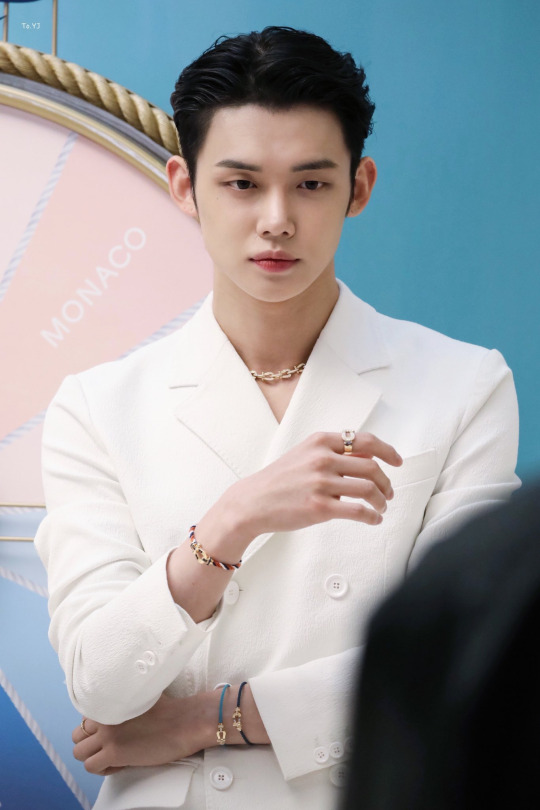

you're an employee at a jewelry company, nowhere near rich enough to buy the products you market. you're at your company's flagship store for the launch of its new jewelry line, and you've got none other than famous model choi yeonjun as its brand ambassador. he arrives with his hair slicked back, wearing a pristine white suit and sporting a few key pieces from the line; though he gives the cameras his best smoldering looks, you aren't particularly impressed. you've met enough rich assholes at your job to last you a lifetime, and yeonjun doesn't seem much different. you watch him pose for the photographers and chat with other guests for a few moments, but shift your mind back to work.
he talks to you exactly once, to ask where the bathroom is. at least he was polite to you, unlike a lot of the VIPs you've met.
the next day is a weekend and you spent it at the plant market, looking at freshly potted flowers about to bloom and seedlings of vegetables ready to be cared for. you might not be able to afford the fancy necklaces and rings that you sell, but at least you have the luxury of growing your own veggies and flowers in your tiny apartment balcony.
you were not expecting it to rain that day, but it does. it's a downpour crashing down from the sky, and though you consider running for it, you're also weighed down by two bags of plants in both hands. so you stand under one of the market tents next to a row of tomato plants, waiting for the rain to stop. it doesn't.
just then you feel a tap on your shoulder and turn to see a young man in a hoodie and cap, sunglasses perched on top of his head. he's carrying an oversized umbrella, large enough for two. "um, hi, excuse me," he says, stumbling over his words, "you were the employee at the jewelry store yesterday, right? do you want help? we can share my umbrella..." he glances down at your bags of plants, then back at you.
it takes a while for you to recognize him until it hits you: choi yeonjun. three things run through your mind at once: first, you're impressed that he managed to remember you when all you did was tell him where the bathroom is. second, you feel a pang of shame for assuming he's a rich asshole when he's making such a kind offer to you. and third, even in a worn-out black hoodie, he's still ridiculously handsome.
you step into the umbrella with him; you feel his fingers brush against yours as he takes one of your bags to carry. "thank you," you tell him. he smiles at you and butterflies erupt in your stomach.
it doesn't feel so bad to be wrong about him this time.
#txt x reader#yeonjun x reader#txt drabbles#yeonjun drabbles#txt soft thoughts#txt soft hours#txt imagines#yeonjun imagines#txt fluff#yeonjun fluff#yeonjun soft thoughts#yeonjun soft hours#bhj: violet's works
494 notes
·
View notes
Text
glow up tips for broke summers⋆.ೃ࿔*:・ 🌻
glowing up doesn’t have to mean draining your wallet. you don’t need a luxury vacation or a $500 skincare routine to have your best summer. here’s how to glow up when you’re on a budget but still have standards:

• focus on what you can control
glow-ups aren’t about spending money — they’re about raising your energy. clean your room. refresh your playlists. do your skincare (even if it's just cleansing and spf). a glow-up is an energy shift first, not a shopping spree.
• diy beauty wins
you don’t need a $50 body scrub. make your own with sugar and olive oil. hair masks? try coconut oil or even just conditioner left in longer. paint your nails at home. glowing up is 90% about the effort, not the price tag.
• get sunlight, move your body
free therapy: a 20-minute walk in the sun. sunlight and movement will do more for your glow than half the “detox” products they’re selling you. it costs $0 to take care of yourself.
• rewear, restyle
you don’t need a new wardrobe — you need new combinations. style what you already own differently. mix, match, accessorize. pinterest is free if you need outfit ideas.
• upgrade your habits, not your closet
wake up earlier. drink more water. romanticize boring days. glowing up isn’t about what you buy — it’s about who you become. a girl with routines, energy, and peace? always in style.
small glow-ups that cost nothing but time:
• learn a new hairstyle • try a cold shower • perfect your skincare routine • journal every night • unfollow people who drain you • plan a solo date (picnic, coffee shop, museum walk)

if you want to level up without the price tag, focus on what actually builds glow: discipline, peace, and confidence. no money required.
btw — if you're upgrading your skincare too, don’t forget you can use my rewards code ARIAXCO1 on YesStyle and Olive Young to save a little money.
#girlblogging#girlhood#hell is a teenage girl#im just a girl#this is a girlblog#motivation#self help#self improvement#glow up#broke glow up#summer glow#it girl#dream girl#self care#self love#that girl#glow up tips#skincare tips#hot girl summer#girlblog#glow up era#summer goals#level up#becoming her#summer self care#glow up journey#girlboss#self respect#confidence boost#summer self love
77 notes
·
View notes
Note
why are bootlegs bad? i get that some are visibly low quality but others only have minor flaws and otherwise look pretty accurate to the real thing. Even prize figures can be a little out of my range (the pjsk ones are going for like $45 on pretty much every site that doesnt have a reputation for bootlegs and I simply don't have the money for that as im young and unemployed) so i have really never had a problem with bootlegs as long as they like have all their limbs and their eyes aren't on their cheeks and the paint job looks fine and such. but I keep seeing people shit on people who buy bootlegs even if they don't look bad (in their words too), is there a moral reason why buying bootlegs is bad?
oh good question anon, there are reasons actually! i present to you; the top 5 reasons why bootlegs are bad!
they are art theft. the artists who design the figures are paid for their work, and when another company rips off their design, it's theft. just like it would be theft if someone made a nice art work, and someone else started making money by selling prints of it.
more bootlegs on the market means more people being scammed! if there are thousands of bootlegs floating around on secondhand market places, it leads to a lot of (unexperienced) collectors unknowingly buying bootlegs. my first figure was actually a bootleg, because there were a whole bunch of bootlegs on the marketplace app i used and i didn't know the signs to be wary of yet. paid way too much for the ugly little bastard
bootlegs can contain unsafe chemicals! the regulations aren't nearly as strict as they are at licensed figure production companies. the dangers of anime figure bootlegs haven't been studied by scientists obviously, but there are many people online who say they have gotten headaches and dizziness from their bootlegs, which also often have a stronger, more chemical scent than licensed figures.
the working conditions of people working in bootleg factories are possibly not great. this is an assumption i make based on the fact that pretty much nothing on aliexpress, temu, shein or any similar website is made ethically. there is no way in hell a $5 bootleg is made by someone who earns a decent wage, let alone the health dangers of those unsafe chemicals that they are working around all day.
they are ugly. i'm sorry they are
i understand it sucks to not be able to afford luxury products right now, but it's not a good solution to buy bootlegs. i swear it's better to be patient and get a real one, maybe you are able to save up, or ask one for your birthday or maybe you'll be able to find a job in the future and have some extra money to spend. it will be worth it when you have a beautiful real figure, that's safe and well made!
102 notes
·
View notes
Text
How Tangerine Luxury is Saving the Earth, One Luxury Item at a Time
In a world dominated by fast fashion and disposable wealth, the detrimental impact of overconsumption on our planet has become increasingly evident. The fashion industry, in particular, has significantly contributed to environmental degradation with its relentless production cycles and wasteful practices. However, as awareness grows, consumers seek alternatives that align with their values and promote sustainability. Tangerine Luxury has emerged as a trailblazer in this movement, holding the baton and leading towards a more responsible and earth-friendly future.

The brand realizes that it is high time we reassess our choices and find both fashionable and sustainable alternatives. It also stands by the belief that consumers play a significant role in driving change. By making mindful choices, they can influence brands and shape industry practices. The shift towards responsible consumption requires a collective effort, with brands taking the lead in providing options that are both environmentally conscious and luxurious.
FOR SELL AND BUY, CLICK THIS LINK :
https://tangerineluxury.com/
As the demand for sustainable alternatives grows, trustworthy brands have emerged to bridge the gap between luxury and responsibility. These brands understand the need for change and are committed to making a positive impact. Tangerine Luxury is among these exemplary brands that are on a mission to prove that luxury and sustainability can coexist harmoniously.
They have assumed the responsibility of revolutionizing the luxury industry by offering preloved treasures that breathe new life into fashion. Each purchase from Tangerine Luxury is a conscious decision to reduce waste, minimize environmental impact, and promote a circular economy.
VISIT INSTAGRAM PROFILE:
Alongside environmental responsibility, Tangerine Luxury also understands the importance of trust and assurance when it comes to luxury fashion. With their stringent verification process, they ensure that every preloved item meets the highest standards of quality and authenticity. Customers can indulge in luxury guilt-free, knowing that their purchase aligns with their values and contributes to a more sustainable future.
As consumers, we hold the power to shape the future of fashion. We can contribute to a more sustainable and responsible industry by embracing brands like Tangerine Luxury. Together, we can join them in the mission to save the earth, one luxury item at a time.
Let us unite in making fashion choices that honor our planet and create a brighter future for generations to come. We thank Tangerine Luxury for their initiative and hope that they achieve their vision and also inspire other brands to follow suit.
CONTACT US :
https://tangerineluxury.com/
+91 70420 39009
#fashion industry#luxury brands#best luxury items service#buying and selling pre-owned products#business of fashion
0 notes
Text
Astro knowledge
A short more educational post for y'all!
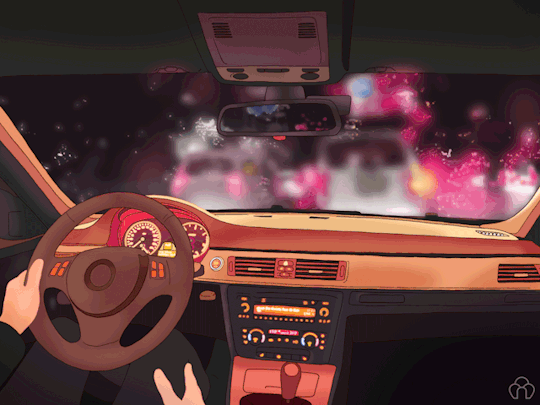
work by astrobydalia
Pisces/Neptune rules marketing while Gemini/Mercury is more about sales. They’re both deeply related but difference is Gemini is the salesman that appeals to your reason and resorts to mind games (Mercury) in a one-on-one to convince you why you should buy into something. Marketing on the other hand is ruled by Pisces because it appeals to the collective unconscious (Neptune). It’s all about crafting subliminal messages that make you see that product/idea as more appealing even when you know what you're seeing is not realistic. Very related to propaganda as well. This is also a field that requires a lot of creativity, they're constantly using metaphors, hyperboles or even making up little fictional stories to sell a product...
I've already said this but for anyone new, the planet that rules real love is moon not Venus. See the full explanation here
Where Sagittarius is in your chart will bring luck and happiness, but Taurus does give off expansive (or dare I say expensive) energy too. Where Taurus sits in your chart is an area of your life that will be more grandiose in nature cause Taurus rules over indulgence and pleasure. You could experience some sort of privilege when it comes to this house, the themes of this house come to you in abundance with little to no effort. Some examples:
Taurus 1st house: have a striking and bold appearance, gives off luxury and attractive vibes regardless of their looks. These people could come across as a "high value woman/man" without trying
Taurus 7th house: very active and abundant love life, lots of suitors and business partners landing on your lab, they want to provide for you and/or give you lucrative opportunities
Taurus 9th house: having access to high quality education or elevated knowledge. Probably attended a very exclusive or expensive collage, payed vacations vibes, easy and frequent relocations
Taurus 10th house: almost untouchable reputation, very respected and liked by others, is always seen as innocent or harmless, lots of success with their ventures
The 2nd house also talks about your roots and upbringing but in a more objective and material sense. This house and the position of its ruler can be very telling of how your actual social and economic context shaped your basic values. It can also talk about your house as the 2nd house rules over real state, lands, properties, etc. The 4th house is more about your home, how you were raised within that reality and how it impacted you emotionally at your core
Example: Libra risings could come from an environment that shaped their values around survival and money gains due to Scorpio 2nd house (I've seen very commonly they come from marginalized groups or humble beginnings or very financially competitive environments). So they have a family that is very demanding and expected them to work or be a boss from a young age (Capricorn 4th house)
Speaking of, 2nd house does not ONLY rule money!!! It rules RESOURCES and anything that you own that is highly valuable and you can put a price on!!!! And yes of course since these things are valuable they can be easily monetized, traded, used to make you money. This can be your skills, assets, real state, etc. The 2nd house is your piggy bank basically
There's a lot of talk about how 11th house is how you make money in your career while 2nd house is how you spend it. Well this is technically true but I'd like to add more explanation to this. In derivative astrology 11th house is 2nd (money) from the 10th (career) so it does show how you actually make money from your career. 2nd house is where you get money but 11th house is how you make money. Your 11th house is the multiplier (credits to @cosmicpuzzle for that fact) while 2nd house is where your financial stability lies on. In other words 11th house is indicative of how you generate more but 2nd house is all about what you already have, its about what you can make with what you OWN already, it deals with money that is already available through your resources' value (again, you piggy bank). This does 'make' you money in a way like if you lose your job and are lacking money your 2nd house where you turn to for example if you own a house you can rent it, you can buy a rare item that costs a lot, selling your art or any other natural skill, etc. The concept of value is important in this house bc it can increase or decrease (while 11th house increases and multiplies). The more valuable your resources are the more potential money you have available which means more financial stability and wealth. Anyways hope all that makes sense
We often refer to water signs when talking spirituality but truth is fire signs are very spiritual in nature as well. Fire symbolizes the spark of life itself, nothing could exist or be created without it. Aries deals with the basic ontological conception of 'I am, I exist', Leo is about how the self manifests and create itself and Sagittarius is about the purpose of the self. Living beings need heat to thrive/live and just like fire radiates heat your spirit radiates energy, creativity, passion, action, inspiration, purpose... and that's what fire signs represent. I'd say fire represents the fundamentality of spirit while water is more about the complexity of inner world.
Just like Aries is the "natural" ASC for a birth chart, Libra is the natural ASC for a composite chart cause a birth chart represents the chart of an individual (Aries) while composite represents the mutual relationship between two people (Libra)
When you develop the themes of a certain house in a healthy manner, you naturally start attracting the themes of the opposite house. This goes to show you that things in astrology aren't as compartmentalized as they seem, everything works together in certain way SPECIALLY axis'. Examples:
You need to focus on yourself first (1st house) to find the right partner (7th house)
You need to investigate and learn (3rd house) in order to find higher answers (9th house)
When you invest successfully (8th house) you earn more available resources (2nd house).
When you develop your hobbies and individuality (5th house) you find keen people (11th house)
When you heal spiritually (12th house) you find healthier habits (6th house)
There's this misconception that you have to disregard your South Node in order to develop you NN, but the thing is the SN is the starting point that can lead you towards developing your NN. This can happen as a harsh and painful lesson tho if you liger too much on your SN. For example NN in Libra need to learn to compromise in this life, there's a lot of focus on the self and independence, but eventually this placement teaches them that if you really wanna develop yourself in full potential (Aries) eventually you'll need others (Libra). If they linger too much on Aries SN they could experience a harsh lesson that forces them to count on others
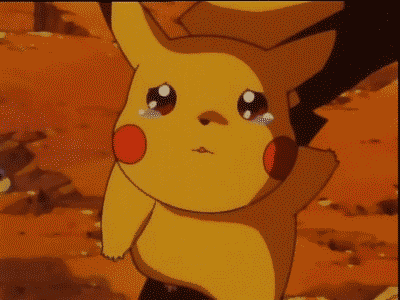
work by astrobydalia
#astrology#astro#astro observations#astro notes#zodiac#birth chart#astrobydalia#astrology observations
764 notes
·
View notes
Text
The majority of rich people on this earth are broke. They don't have any money. I'll explain why:
Rich people don't make enough money to afford their lifestyles. What they do is that they they take out loans. These loans are countered against the property, businesses, and shares they hold.
So a rich person who brings in about 250,000 a month, will take out a loan for about $10 million to afford their lifestyle. That's for buying property, cars, going on vacation, hosting parties, jewelry etc.
They don't have enough liquid cash to afford any of these things on their own. That's why they take out these loans. Plus they have lines of credit.
This of course is not free money. They have to pay back monthly premiums. If they ever default, the banks will start snatching up their assets. This is where we start the nonsense:
Lower taxes? Rich person bringing home $250,000 a month that means they pay close to $150,000 dollars in taxes. They want to pay less taxes so they can:
get bigger loans
have more cushion rooms to pay their premiums
As you can imagine, getting a 10 million dollar loan, and spending it on luxury life style, will cause that money to quickly run out, and now they're paying premiums and are broke. They have to take out more loans, get more credit, it's a violent spiral.
(This is why I always say that people who complain about taxes are bad with money.)
How it fucks you: Less taxes means services get cut, and become worse.
Rent? A lot of rich people invest in property because it gives monthly income that they can use to pay their bills. The push against work from home? Majority of companies rent out their corporate spaces. With WFH, many companies downsized or got rid of their spaces. We saw a lot of rich people who expected monthly income suddenly lose that income. This scares them because they were counting on that income to pay their bills.
They're also against zoning reform, and building more houses because that could potentially lower rent, which would mean their monthly income would reduce.
Remember, the loans and credit that these broke fucks have to pay back, don't decrease.
Layoffs? Rich people who have shares in companies get dividends. When a company makes 1.2 billion in profit, those dividends go to the shareholders. If next year, the same company makes 800 million in profits, the shareholders get smaller dividends. Rich people are expecting on the money they receive from these companies to stay the same or get bigger.
Every wonder why companies rush out products that are obviously not ready? Those shareholders are pushing for the product to get out as soon as possible so they can quickly get the profits so they can pay their bills.
Investment bubbles? Rich people throwing their money in the new shiny thing in hopes it explodes and they make profit in order to pay off all their loans and credits, and then get even bigger loans and larger credit lines.
Literally every shitty thing in society can be traced back to rich people's poor money management. Very few rich people have liquid cash. This is why billionaires are so powerful.
When interest rates go up and causes premiums to balloon, rich people have to sell their assets to stay afloat, Billionaires can eat the costs, buy up businesses, properties and capital at lower rates, and then sell them when the economy recovers and the value bounces back.
You ever wondered why celebrities and athletes make so much money and then seem to lose it all? It's because of what I described as above. They get loans to afford their lifestyle, and then when their earnings dry up, they can't afford to pay their monthly premiums and the bank takes everything away.
We are told stories of "irresponsible spending" ex: buying golden yachts. When in actuality, they were simple doing as the romans do. Majority of celebrities don't have consistent income that lasts for decades unlike rich people have jobs and companies that pays them regularly for decades.
In conclusion: we need to destroy the lifestyle of the rich.
Loans should be regulated to things like buying property (homes people live in, and primary cars), entrepreneurship, life events, (weddings, ceremonies, plastic surgery, medical issues, emergencies, necessary renovations etc), education, research, etc. and other loans (luxury items, extra homes, personal loans etc.) should be penalized and taxed.
By forcing rich people to live on their liquid cash, would literally shift our society to a more egalitarian one, and make a healthy economy that focuses on progress and growth.
100 notes
·
View notes
Note
I've seen your tweet which criticizes the worldbuilding in Helluva Boss and how the Goetias feel like "Hollywood with royal titles" rather than true aristocracy, and I would like you to elaborate on that, if that's OK.
Thank you so much for this ask as I never got to expand on this point at the time. For those not in the know, the user is referencing this exchange on Twitter.
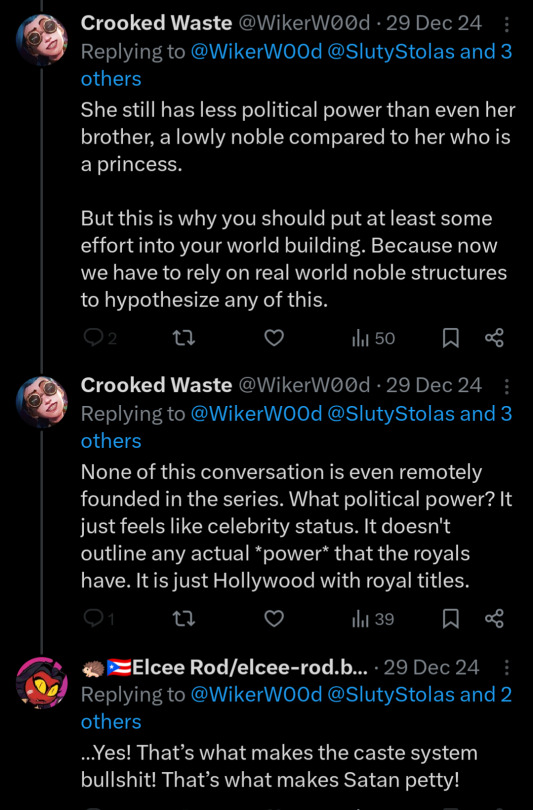
As much as the elites of our world would like to disperse the truth, the reality is that all societies are constructed around power. Who has power, how and why. That is the fundamental basis of every social dynamic from children on a playground to the politicians in our governments. So the very first thing we should even approach in regards to the narrative is how does power work in this universe?
So when I responded to Elcee in the tweet being referenced, I am evaluating power and power structures. Mainly there are two wholly different constructs of power between something like the aristocracy and celebrities.
The closest thing to an aristocracy we have in our modern day are the financial oligarchs of Capitalism. Elon Musk, Jeff Bezos, Bill Gates, etc. They have control everything from how our political parties engage with us to how we think based on the wealth they were born into. They curate our lives behind the scenes in ways that sound worthy of a tinfoil hat, but isn't a conspiracy. The wealthy were threatened in the 1970s by an educated proletariate. In response to our questioning the Vietnam war, the higher education that was once free or at least extremely affordable suddenly became prohibitively expensive.
So much so that only the financial aristocracy could access it. Whereas working class individuals are forced to jump through hoops and prove themselves suitably subservient to the existing power of the oligarchy in the form of scholarship applications, teacher recommendations and application letters before being granted access. This is not a mistake or how it's always been, this is by design.
Meanwhile, Celebrities are not elites. While we think of celebrities as being overpaid and living in luxury, it only takes a glance over at Chappell Roan to see the difference. When Jeff Bezos or Elon Musk or any large corporate CEO walks the red carpet, they are treated as royalty. When celebrities walk the red carpet, they are commodities.
Celebrity is the modern day face of the American Dream. Gone are the days of a single family home and a white picket fence. The boom of content over art, luxury over practicality, and excess over comfort is directly the result of selling to the world the idea of capitalistic success, which just amounts to perpetuating the system of turning humans into money. And for as much money as these celebrities make, it has been proven over and over again that they are just as susceptible to poverty as any other working class individual.
Celebrities are products we buy, and when we stop buying them, they vanish.
Meanwhile the aristocracy, the financial oligarchy, thrives in obscurity.
The difference in power is about who still has it when we no longer see them. And the more invisible and pervasive it is, the more real it is. However one as an individual thinks about the celebrity class, they are simple a different type of specialized tool to the true power behind the scenes.
With that differential in mind, the Goetia function more like celebrities rather than CEOs, and while Elcee fails to see the bigger picture, that subliminally tells the audience that someone with the title of prince, with armies sworn to his allegiance and infinite cosmic power, is no different than a working class joe.
This isn't intentional propaganda, however. It's not her trying to further the agendas of Jeff Bezos intentionally. Just like my other post covering how Medrano tries to excuse cheating, not realizing the only time one can argue such a blanket concept of forgiveness for such a betrayal can only happen when the option of choice is non-existent (ie Divorce is not on the table for reasons outside of the characters’ choices), this is the danger of not engaging with media with your mind turned on. You will innately, no matter how careful someone tries to be, engage with the material through the eyes of the creator.
Celebrities and average people are the same: commodities in the face of real power. But Medrano cannot tell the difference between someone like Elon Musk and his employees. She sees the aristocracy, the ones who were born into a legacy of wealth, as “hardworking average folks”. And if you aren't thinking, you might find yourself implicitly believing that too. Deeper entrenching the power they have over you as an individual and society as a whole.
How we got to where we are in our real lives is mirrored in the media we consume. And that isn't an accident.
#ask and answer#power structures#helluva boss critique#helluva boss criticism#helluva boss critical#vivziepop critical#vivziepop critique#vivziepop criticism#elcee is such a tool
93 notes
·
View notes
Text
Time period post: Tough decisions (being poor in the 1960s)

It pains me when Greasers, especially in relation to the outsiders get boiled down to Jackets, hair grease and rock n’ roll. I spoke of it here and a few of my other posts of greasers as a subculture, but it was often times a label put on “Poor Bully” social clubs/friend groups/gangs. Who sometimes where the expected uniforms other times don’t.
Class is something that’s essential to understanding the context of the Curtis gang and The Outsiders. Sometimes, I think that how poor they are tends to be forgotten or people are unfamiliar with things to consider or incorporate so I hope this can help. It’s not ‘we can’t go on vacation :(.’ It’s ‘sometimes you have to chose between food and heat’.
I’m going to try and do my best to share some base elements that’d be helpful for fics and fanart. This is not a historical rundown on treatment, programs or social movements of the time but the more practical, day to day instead of broader background. Also not saying all of these apply.
Lunch meat and stretching-
When it comes to food it’s going to be more canned and processed, baloney as lunch meat instead of turkey. Canned vegetables instead of fresh ones at dinner. White bread over something from a bakery. Cheaper cuts of meat like: rounds, thighs, flank, cube steak, or sometimes not a meat at all if it’s a hard month.
Buying foods on sale (everything really) or from thrift food stores. Around this time SNAP (foodstamps) got a big revitalization so fresher food is more available and there’s help with grocery costs. Other resources are places like Food banks, food pantry’s , soup kitchens, charity’s or churches as a place to get some ingredients or a meal if particularly in need
Seasoning and sauces tend to be heavy, both out of recipes at the time but also if you have a lesser quality ingredient it’s easier to taste better/be better for you. Meals could be fixed too, having fixed menus and a few staple recipes to recycle through can be a real budgeting help and help to mothers/who cooks (this is true in middle class homes too)
I don’t know for sure but I can imagine that some staple recipes that might be shared are hold overs from the Great Depression or war rations, as they aren’t far off in the 60s. Things from necessity can quickly become a staple/nostalgic as well as already being a thrifty recipe.
Repair, reuse and recycle-
Broken and dirty things aren’t just tossed away as easily, if it can be cleaned or fixed in anyway- it will be or kept around until it can be. Clothes are mended— wear shoes till there’s holes and they’re taped just to stay on before getting a new pair.
Repairs, damaged and broken things or parts of the house that need repair can take a long time to get around to if most of the house is working. If you can’t fix yourself but can’t afford a repairman either. Poor economic circumstances can make people get creative and build practical skills, learn to fix, pick parts and Jerry-rig. When fixing or replacing can be a luxury it’s a great skill to learn for yourself.
I’ve talked about it in my car post but there’s also junk yards! It’s not just cars and it’s not always an established spot, sometimes it’s someone’s literal lawn/yard. A place to pick stuff apart for parts to use or sell — it is a good help and spot for community. Mentioned in the movie how the Curtis yard and a few surrounding have the beginnings, old Cars, lumber etc
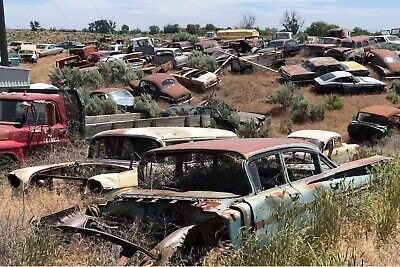
Use things up! You finish shampoo? Put water in it. Stretch it. There’s a tangible appreciation of even mundane products, fully using what you have.
Reuse old containers (like the trope of the sewing kit in the cookies or the butter as Tupperware.) the 1960s had a lot of good solid glass and other material containers that could truly be reused and durable.
Sacrifice-
Sometimes you have to make the rough choices, what gets fixed, what bills get paid, who showers, who eats? What is the priority for this paycheck? It can be hard to save up.
There’s also a variety of social programs, officers and charities to work through. While not always reliable services like employment offices, night school, skill centers etc all exist as additional resources. Increasingly so with the social changes of the 1960s and pressure put on the government to make change.
Pride and community-
First brought up and I’ve explained it better in this post, but there’s a real social safety net and reliance on others. You help your own and also know when to mind your business. Talking at the gas station or bait/hunting shopping or local dive instead of cocktail parties, waving off porches where everyone’s invited.
At the same time it’s an environment where it’s easier for teens to turn to the street, getting rough and gangs. Between boredom, masculinity and sometimes necessity it’s easy to see. Especially when home might be at work a lot or caring that stress/anger home and creating a cycle.
There’s resolve, practical skill, love, resilience too. At the end of the day you go out and shop, you talk with neighbors, you go to school or watch TV like anyone else. what I don’t want to do is paint a desolate victim image— there’s so much more to a person than hard decisions or being poor. That’s part of what the Outsiders is about— how they’re regular guys too but this image put on them can really bring a guy down.
There’s pride too, that doesn’t come from ownership. From paving way, from survival, from managing on your own. Pride for yourself and your community despite negativity.
Greasy girls make do-
When money is scarce you’re not going to have a large budget for non essentials like makeup, hair rollers etc. So you get creative, there’s stories of Dolly pinching her cheeks or making eye liner from burnt matchsticks— girls find a way to pretty themselves. Now I don’t think most on the east side are at that extent but it highlights my point. Honestly i think most of the girls would lift some of their collection, or have it from the pharmacy not the Sears (not so different from today.) they’d also do it far bolder/heavier.
No rollers the size you want? No problem… orange drink cans! Or any empty can, it’s become a “redneck trope” At this point but it’s longstanding, same goes for using a literal clothes iron to straighten hair (both would also be used by middle class girls).
Girls would also be working, helping family if need be too. Important to note this. There’s always been working women, long before Ww2 and don’t ever think otherwise.

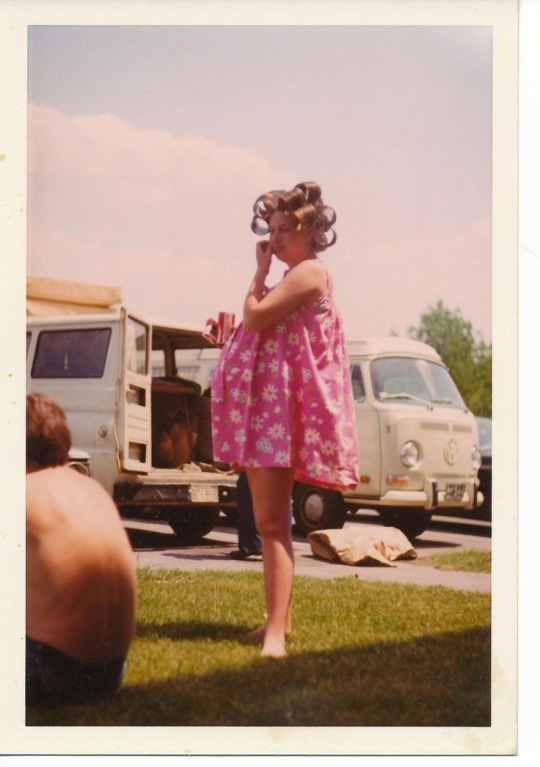

#the outsiders#time period post#time period post : tough decisions#1960s#historical context#writing help#outsiders meta#writing reference
56 notes
·
View notes
Text
Last post on the entire date ticket thing and then I will forever shut up about it, but I feel like most people arguing in favor of the price tag are just….missing the point on why people are so angry about the date ticket being $30
I think the one thing we can all agree on right from the get go is that everyone in the staff deserve to and should be compensated fairly for their work. And that obviously includes certain features and items having to cost actual money considering the game itself is free
But the thing is, that $30 price tag doesn't just exist in a vacuum
First off, we can all agree that charging something like $3 would have made the ticket sell far better, right? Several people have already pointed out that they can buy a week's worth of groceries with $30 and depending on how much you earn, the date ticket isn't exactly something anyone can just buy on a whim. Again, $3 would have been far more affordable for most people, and I'm sure many more people (myself included) would have been far more willing to spend $3 just to see what the date ticket is like, and maybe also buy the tickets of multiple other characters. But $30 for a single date ticket is a luxury a lot of people just cannot afford, or would rather put into something else. Even if they lowered the price, they'd surely break even and make profit with how many players there are
And judging by its contents, I think it's fair to say that the date itself is not worth $30. And I feel like Solmare themselves know this because why else would they have bundled it with 300 DP? The only reason is to justify this price tag because "look at how much DP we're getting with it tho!!" when that's not the point. It doesn't matter whether the DP are included, because there is a lack of choice here. We have other options to earn and buy DP, but we don't have a choice when it comes to the date ticket itself. Either you pay $30, or you miss out on a feature that many of us have wanted for a while now. And since it's the DP raising the price tag,what you are essentially paying for is 300 DP with a date ticket as your purchase bonus, even though it should be the other way round
And honestly? Considering the price, the only two times it would make sense to buy this bundle is if you were already considering buying DP anyway, or if you are financially well enough off that the current price doesn't matter to you. You won't convince most casual spenders, and you most definitely will not convince a f2p player to pay for this feature
The other thing is that we had no idea what the date ticket actually entailed because we weren't given any information on it. Thanks to people in the community buying and reviewing this feature for others we now know that the date consists of one phone call, a ~10 minute long, partially voiced date story-line and a Majolish background. Except, those are things that Solmare themselves should have told us right as they announced this feature, ESPECIALLY considering the price point. If you don't, you can't complain if people are accusing your company of trying to rip its player base off and of being greedier than the Avatar of Greed himself. But also, that's the thing!
We shouldn't have people in the fandom be the ones to go out of their way to give us basic info on new features, or to even explain certain business decisions in the first place. That's the company's job. Yes, certain explanations should be a given (such as microtransactions existing so that the staff can be paid the money they obviously deserve), but there are other things that should have been explained by Solmare themselves
Open communication with the player base is the key phrase here, and imo Solmare has been doing worse and worse on that front as of late, resulting in several unexplained choices that just seem questionable at best and scummy at worst, as well as a player base that grows more and more disgruntled by the day. And that frustration within the player base shows in the amount of people dropping the game, as well as in the amount of money it's making
People are willing to put their time and money into something they deem a good, quality product with a justified price considering the content. If your player base isn't putting in the money you are expecting, then maybe you should listen to their feedback and re-examine your product instead of overcharging a feature because "look at this thing you're getting extra that no one asked to be included in the bundle in the first place"
Literally part of the reason LaDS has grown to be so successful in such a short amount of time is because they keep making adjustments based on player feedback, even on some minor things. I mean they literally pushed out an update to correct the color of one of the character's tongue in the newest card because people were complaining, like hello!! Imagine Solmare listening to complains as minor as this
Anyway, whether intentional or not, this entire thing just feels scummy, and that's the problem. The choice we have is either "pay 30 bucks per character or miss out on this feature entirely", the price is artificially inflated with the inclusion of DP that we have other ways of getting, romance is slowly fazed out of the story only to now be put behind a heft paywall, we weren't told what we are even paying for exactly in the first place, and there has been a severe lack of proper communication from Solmare that have soured the relationship to the game's fanbase and, most importantly in this context, their customers
No, companies aren't our friends. Yes, they need to make money. Yes, they should pay their employees fairly. And no, we as consumers shouldn't expect nor are we entitled to everything about the game being free because again, the people working on this game deserve to get paid fairly for all the work they put into it
However, people are still allowed to be critical of a company and its decisions, especially when they feel like they are getting ripped off. The 300 DP might soften the blow, but that doesn't stop everything that has happened before from being a slap in the face. That's why people are pissed right now, and honestly it's been a long time coming
#oh wow this turned out lengthy#i do want to say that i am genuinely happy for anyone that bought the ticket & enjoyed the date#but objectively speaking the ticket itself is not worth the $30#the main justification i've seen for the price being this high are the 300 dp & that the price is in line with the other dp prices#from akuzon. and like. guys.#at that point we are buying the dp & getting the *ticket* as a bonus. you are admitting to that yourselves with that line of argumentation#also lads mentioned because the devs listen to feedback hence people are more willing to spend money#anyway like i said i'm done with this topic now#i will return to the regular posts now (whatever those are at this point)#obey me
99 notes
·
View notes